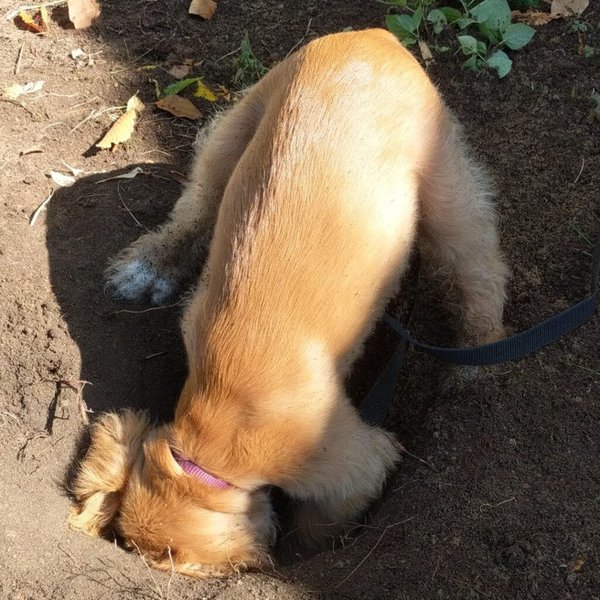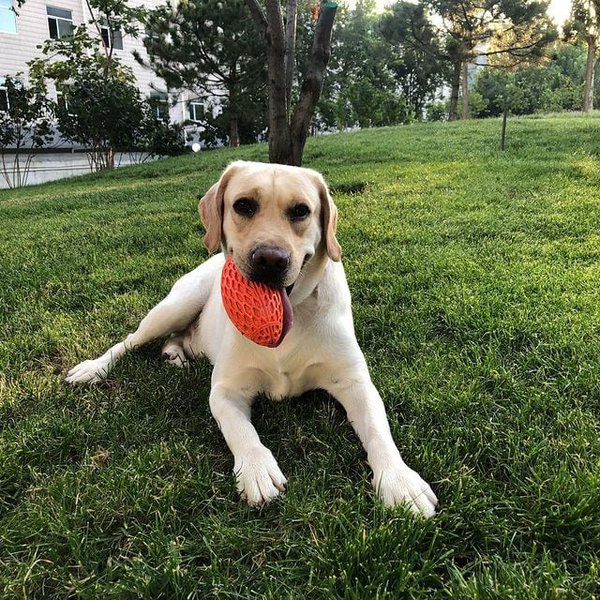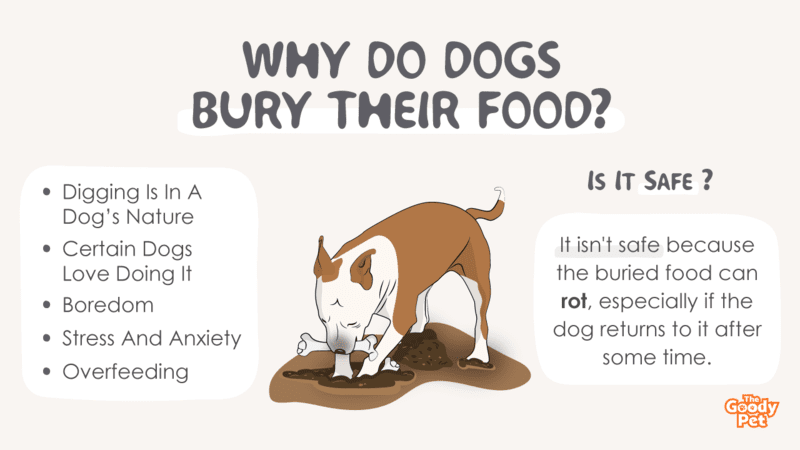Dogs are known for burying their food. Although many people believe that dogs bury their food to hide it from other animals or people, this isn’t actually the case.
So why do dogs bury their food?
Most experts believe that dogs bury their food because it is a genetically inherited trait. Their wild ancestors would bury food to save it for later, and the trait has been passed down to domesticated dogs.
Some experts also believe that dogs bury their food as a way of marking their territory. Dogs often bury things like bones or food scraps to claim their territory, which might be a leftover instinct from when they were wild animals.
Why Do Dogs Bury Their Food?
Digging Is In A Dog’s Nature
One of the simplest explanations for the food burying behavior in dogs is the fact that this is an inherited canine behavior that dates thousands of years back, and has somehow managed to survive the test of time.
The idea of food burying by ancient dogs was simple – dogs back then would bury excess or leftover food in the soil, which served as a form of the refrigerator by helping keep food cool and maintaining freshness. And once hunger set in again, the dog would return to dig up and feed on the buried food.
That said, modern dogs bury food, not for survival reasons but because this is a behavior that has become deeply rooted in the canine DNA over the years.
Certain Dogs Love Doing It
We’ve mentioned earlier how food burying is normal canine behavior, and it is also worth noting that there are certain dog breeds that are more predisposed to burying food than others.
Terriers, Beagles, Basset Hounds, and Dachshunds are more likely to bury food, and this isn’t unrelated to the fact that these pooches were originally bred to dig, search for, and hunt small game.
Boredom
Dogs are prone to picking up a lot of bad habits when bored, and you shouldn’t be surprised to see your pooch digging up and burying food when it has excess time on its paws.
Dogs need continuous mental stimulation and an outlet for excess energy, and food burying readily provides an avenue for this.
Stress And Anxiety
Similarly, food burying can also be a dog’s natural response to stressful situations. Dogs typically dig and bury food to calm themselves, as this behavior, for one reason or the other, has a soothing effect on them.
Burying food to eat later is commonly observed among dogs raised in multi-dog households or due to experiences in the pooch’s past where access to food was limited.
Similarly, if a pooch isn’t comfortable with where it is being fed, such a dog may bury food and later return to dig up and eat the buried food when the atmosphere is calmer – this typically happens when the home is extremely noisy or there’s a lot of human activity.
Overfeeding
Food burying by a dog may also indicate that you’re giving such a pooch way more food than it is supposed to be eating. And when such a dog can take in no more food, the next point of action will be to bury leftover food and return to it later.
Is It Safe For Dogs To Bury Their Food?

Food burying is natural and safe for dogs to practice, but there are instances where this behavior can be detrimental to your Fido’s well-being.
Firstly, food that a dog buries in the ground is liable to become rotten, especially if the dog takes a long time to return to it.
Secondly, feeding on such rotten food can cause a myriad of health issues for the pooch; Some dogs have extremely sensitive stomachs, and feeding on buried food that has been exposed to soil microorganisms can wreak serious havoc on the dogs’ digestive systems.
Additionally, if a dog is routinely burying food due to not being comfortable with its feeding environment or due to competition for food with other dogs, there’s a tendency for the dog to become malnourished.
Dogs suffering from a compulsive disorder may also continue digging till their paws become swollen and sore. And in some cases, a pooch’s paws can become seriously injured if exposed to harmful chemicals contained in the soil.
How Can I Stop My Dog From Burying Food?
You can stop your dog from burying food by taking up a strict feeding routine, engaging the pooch in a variety of activities to keep it busy, and creating a stress-free environment.
Adjust Your Feeding Routine
One of the surest means of stopping the act of food burying by a dog is by adopting and maintaining a strict feeding routine for the pooch.
Feed the dog only at scheduled times, monitor the pooch while eating, and once the dog is done eating, immediately remove any leftovers to prevent burying. Alternatively, if you’ve been feeding your pooch excess food, you can limit such a dog’s tendency to bury food by cutting down on the pooch’s diet in a way that won’t be detrimental to such a dog’s health.
Additionally, if you need help determining how much food you should be giving to your dog, you can always consult your vet for help and guidance.
Keep Your Dog Busy
To prevent food burying due to boredom, you should provide your pooch with plenty of avenues to exercise itself, both mentally and physically, thereby letting out excess energy in the process.
Provide lots of interactive toys to keep your furry friend engaged and entertained, and you should also regularly take the dog on walks and provide ample playtime. Additionally, you can make feeding fun for your dear Fido by incorporating puzzles into the dog’s feeding routine.

Create A Stress-Free Environment
By ensuring that your dog feels safe and comfortable at all times, you can eliminate the need for such a dog to want to bury food.
If you have multiple dogs, ensure to give the dogs sufficient food so that there’ll be no need to hide or hoard food. Also, if your dogs are fond of stealing food from each other while eating, then the best bet will be to separate and feed each dog individually.
Seek Professional Help
If, after trying the solutions listed above, your pooch continues to bury its food, such a pooch may be suffering from obsessive-compulsive disorder. And in this case, you and your dog will need the help of a trained animal behaviorist or canine ethologist to understand and correct this behavior.





